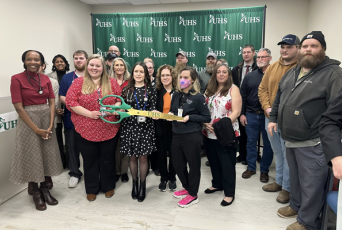
Medical Review Officer Services
Medical Review Officer (MRO) services are available for interpretation of drug test results. The MRO is a licensed physician who is certified by the American Association of Medical Review Officers and knowledgeable in the medical use of prescription drugs and the pharmacology and toxicology of Illicit drugs. For all positive test results the MRO will conduct a medical interview by phone or in person, including review of medical history or any relevant biomedical factors, prior to reporting a positive result to the Company. The MRO will advise the individual of the right to have the secondary split specimen tested if the request is made within 72 hours of the notification of a verified positive result.
If the MRO is unable to reach the individual who has tested positive after three attempts over a twenty-four hour period, the MRO will notify the Company via the designated employer representative and request the Company ask the individual to contact the MRO.
UHS News
-
 UHS Launches MyChart “On My Way” for lab appointment online schedulingFebruary 17, 2026
UHS Launches MyChart “On My Way” for lab appointment online schedulingFebruary 17, 2026UHS has introduced a new digital feature designed to make laboratory visits faster, easier, and more convenient for patients. Patients can now use MyChart’s “On My Way” to save your spot in line for a future time that day.
-
 Know where to go for your medical concernFebruary 16, 2026
Know where to go for your medical concernFebruary 16, 2026It can be tough to distinguish where to go for medical care when your symptoms feel unbearable, and your primary care provider is unavailable. Here are some key differences to help you decide.
-
 UHS supports tobacco cessation in partnership with St. Joseph's HealthFebruary 13, 2026
UHS supports tobacco cessation in partnership with St. Joseph's HealthFebruary 13, 2026UHS is pleased to announce its continued collaboration with the Central New York Regional Center for Tobacco Health Systems at St. Joseph's Health. Through this partnership, UHS has strengthened its tobacco-dependence treatment policy, aligning it with the Public Health Service Clinical Practice Guidelines.
-
 UHS Pediatrics Upper Front Street holds ribbon-cutting ceremonyFebruary 13, 2026
UHS Pediatrics Upper Front Street holds ribbon-cutting ceremonyFebruary 13, 2026On Thursday, February 12, UHS hosted a ribbon cutting to celebrate the opening of UHS Pediatrics Upper Front Street. The practice, which previously served patients on Chenango Bridge Road, welcomed its first patients at the new location on February 2.

